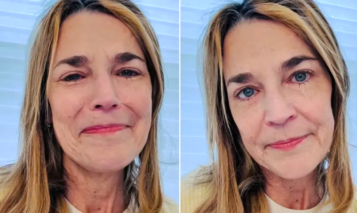
Rev. Drene Keyes, of Virginia, was anxious about receiving her first dose of the still experimental Pfizer mRNA Covid-19 vaccine. So anxious that she asked a co-worker to go with her to the vaccination site.
The 58-year-old, “gifted grandmother of six” was in the high-risk category for Covid-19 with multiple preexisting conditions including diabetes, morbid obesity, high cholesterol, high blood pressure and sleep apnea.
Keyes’ daughter, Lisa Jones, told WKTR her mom’s job “made her eligible for the vaccine.”
Keyes believed the vaccine would lessen her symptoms if she contracted the coronavirus.
Before she left home, Jones helped her put on her shoes.
“She was such a loving and generous person,” Jones said.
A co-worker accompanied Keyes to a medical facility in Warsaw, where she got the injection on Saturday. Keyes waited the mandatory 15-minute observation period before heading to her car in the parking lot.
Her co-worker said she was getting into her car when she suddenly said, “Something is not right. Something’s not right.”
Keyes had difficulty breathing and began vomiting. She was rushed to VCU Tappahannock Hospital, where doctors administered Epipen (epinephrine for anaphylaxis), CPR and oxygen.

“They tried to remove fluid from her lungs. They called it ‘flash pulmonary edema,’ and doctors told me that it can be caused by anaphylaxis,” said Jones (pictured right). “The doctor told me that often during anaphylaxis, chemicals are released inside of a person’s body and can cause this to happen.”
Anaphylaxis is a severe, life-threatening allergic reaction that can occur within seconds or minutes after exposure to a substance the person is allergic to.
People who suffer an anaphylactic reaction should receive an epinephrine injection immediately to counteract the allergen.
Signs and symptoms of an anaphylactic reaction include itchy rash, swelling of the tongue and throat, difficulty swallowing, difficulty inhaling, shortness of breath and light headedness.
The onset of symptoms can occur within seconds or minutes.
Health officials previously cautioned people not to take the mRNA vaccine if they had a severe allergic reaction in the past.
The risks — including death — were spelled out in the documents that Keyes signed before she got the vaccine.
Still, Jones is demanding answers. She believes more testing should have been done before the vaccines were rushed to market for a virus with a 99.4% survival rate.
“Why are we allowing people with underlying conditions to be guinea pigs for a vaccine that is still in clinical trials and emergency use?” Jones questioned.
Jones told WTVR she hopes her mother’s death serves as a warning to doctors and health professionals to pre-screen patients prior to administering the vaccine.
“My mom was wanting to protect herself, and it did not turn out that way,” Jones told WBRZ.
Health officials insist Keyes did not die from anaphylaxis or a reaction to the vaccine — despite ER doctors treating her for anaphylaxis.
The CDC is also investigating the deaths of a 56-year-old Florida doctor about two weeks after getting his first Pfizer vaccine, and a 60-year-old California healthcare worker who died four days after his second injection with the Pfizer vaccine.
“Drene Keyes believed mainstream media, government health officials, her doctors and Big Pharma that Pfizer’s vaccine was safe and it would protect her,” said Robert F. Kennedy, Jr.
“Her faith and trust in those people and institutions may have cost her her life.”





